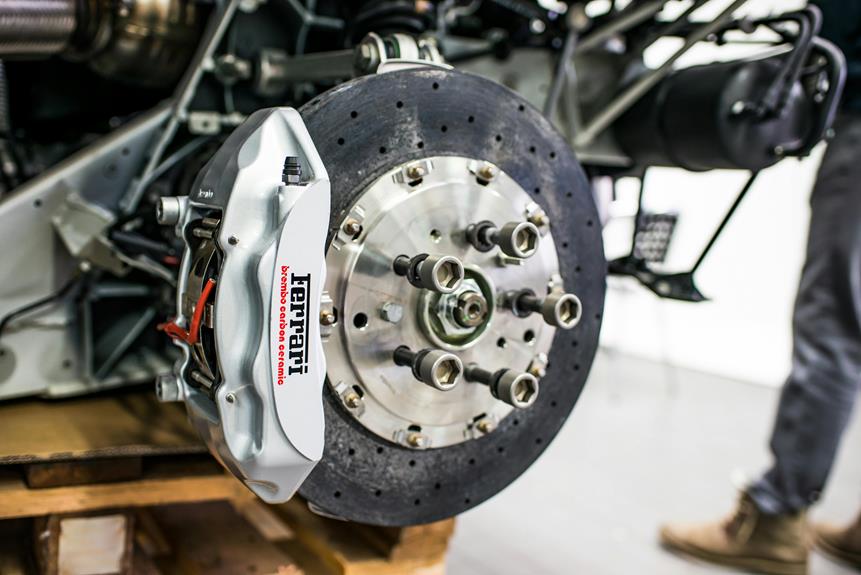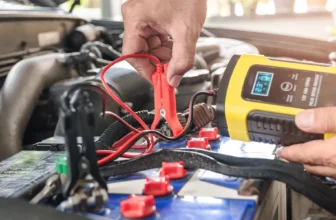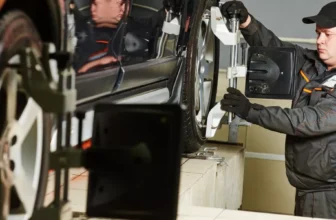
If you've been noticing some unusual sounds when you step on the brakes, it might be time to consider the condition of your car's brakes. Those sounds could be a warning sign that something needs attention. But that's just the beginning of the story. There are a few more key indicators you should be aware of when it comes to ensuring your safety on the road.
Unusual Sounds While Braking
If you hear any unusual sounds while braking, such as grinding or squeaking, it may indicate that your car's brakes need replacing. These sounds are often a warning sign that the brake pads have worn down and are no longer effectively slowing your vehicle. Ignoring these sounds can lead to further damage to your brake system and compromise your safety on the road.
Grinding noises typically suggest that the brake pads are completely worn out, and the metal calipers are grinding against the rotors. This can't only be dangerous but also result in more costly repairs if not addressed promptly. On the other hand, squeaking sounds could indicate that the brake pads have worn down to the wear indicators, which are designed to emit a high-pitched noise to alert you of the issue.
Therefore, if you notice any unusual sounds while braking, it's essential to have your brakes inspected by a professional mechanic to determine if they need replacing. Taking care of this promptly can ensure your safety and prevent further damage to your vehicle.
Vibrations or Shaking When Braking
When your car experiences vibrations or shaking when braking, it may be a sign of potential issues with the brake system. These symptoms often indicate that the brake rotors are warped or unevenly worn. Warped rotors can occur from excessive heat buildup during braking or from general wear and tear over time. The uneven surface of the rotor can cause the brake pads to make inconsistent contact, leading to the vibrations or shaking you feel through the steering wheel or brake pedal.
Ignoring these vibrations can worsen the problem and affect your ability to brake safely. If left unaddressed, it could lead to more severe damage to other brake components and compromise your overall braking performance. Therefore, it's crucial to have your brake system inspected by a qualified mechanic as soon as you notice these symptoms. They can determine the extent of the issue and recommend the necessary repairs to ensure your safety on the road.
Longer Braking Distances
Experiencing longer braking distances than usual indicates a potential issue with your car's brake system. When you press the brake pedal, your vehicle should respond promptly and come to a smooth stop. If you notice that your car is taking longer to stop or if you need to apply more pressure to the brake pedal than usual, it's a sign that something might be wrong with the brakes.
Several factors can contribute to longer braking distances. One common issue is worn brake pads. As brake pads wear down, they become less effective at creating the friction needed to stop your car efficiently. Another possible cause is brake fluid leakage, which can lead to a loss of hydraulic pressure in the brake system. Additionally, a malfunctioning brake caliper or rotor could also be to blame for the increased stopping distance.
To ensure your safety on the road, it's crucial to address any problems with your brakes promptly. If you're experiencing longer braking distances, have your brake system inspected by a qualified mechanic to identify and resolve the issue.
Brake Warning Light Illumination
Upon detecting the illumination of the brake warning light in your car, promptly address this crucial indicator of potential brake system issues. When the brake warning light comes on, it typically signifies a problem with the braking system that needs immediate attention. This warning light could indicate various issues such as low brake fluid levels, worn brake pads, or a malfunction in the braking system.
Ignoring the brake warning light can lead to serious safety risks, including brake failure. It's essential to have the brake system inspected by a qualified mechanic as soon as possible to diagnose and address the underlying problem. Continuing to drive with the brake warning light on could result in further damage to the brake components, leading to more costly repairs down the line.
Uneven Brake Pad Wear
If you notice one brake pad wearing significantly more than the others, it could indicate uneven brake pad wear. Uneven brake pad wear occurs when one brake pad on a wheel wears out faster than the others. This can happen due to various reasons such as a stuck caliper, misaligned brake pads, or uneven rotor surface.
Uneven brake pad wear can lead to decreased braking efficiency, causing your car to take longer to stop or pull to one side when braking. It can also result in increased wear on other brake components and potentially lead to more costly repairs if not addressed promptly.
To prevent uneven brake pad wear, it's essential to have your brakes regularly inspected and serviced by a professional mechanic. They can check for signs of uneven wear and address any issues before they escalate. Maintaining proper brake pad thickness and ensuring all components are working correctly will help keep your brakes in optimal condition and ensure your safety on the road.




